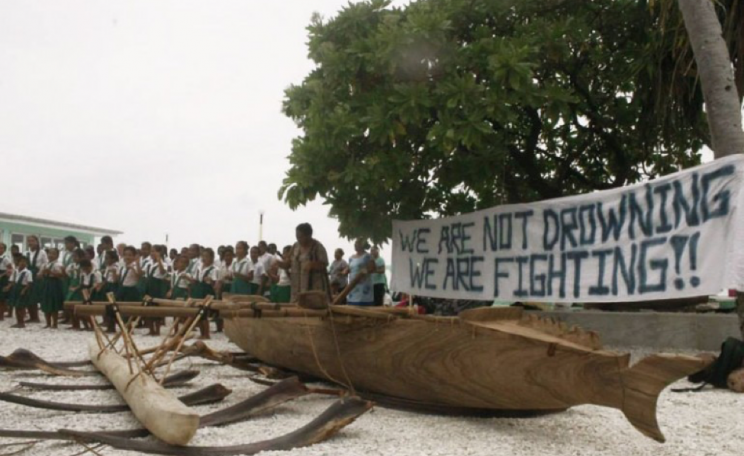I'm sitting on the Stena Line ferry from Holyhead to Dublin on my way to a family wedding. A man dressed head to toe as Curious George the chimp has just strode gamely by, pursued by a gaggle of screeching children, many wielding balloons tied in all manner of unlikely shapes.
Plastic pint mugs of beer flow freely, electronic explosions can be regularly heard from the arcade machines, and in the Met bar lounge, a giant projector screen is keeping a few listless voyagers up to speed with the latest from the darts. Yes, it's ecotravel, Jim, but not as we know it.
Over the past two years of writing my new book Clean Breaks - 500 New Ways to See the World, my conception of green tourism, sustainable travel - call it what you will, has shifted considerably.
Not that long ago I associated it almost exclusively with the sort of volunteer holidays where one stays with scientists and helps record populations of endangered species.
But I now believe that these same approaches can be adapted to all manner of less obviously 'green' holidays. Even in some of the world's most hectic metropolises you can choose to stay in New York's Sugar Hill Inn, a restored brownstone in Harlem powered by solar panels or Tokyo's tranquil Yoshimizu Inn.
While in a city you could choose to eat at organic restaurants like London's trailblazing Acorn House, travel on city bike tours and by public transport and stock up at local farmers markets and thrift shops.
Likewise you could have a beach holiday with a difference - head to Zakynthos and stay with Ionian Eco Holidays - and as well as visiting protected beaches and eating fresh food from the village gardens, you'll be able to help out with monitoring turtle nesting sites.
One thing you won't be able to do is bag an early deckchair - to protect the turtles' eggs, no one is allowed on the beach between dusk and dawn. Oh, and deckchairs are banned too (in case they disturb the nests). Whether you are a diver, a skier, a yachtie or a lounge lizard, there are ways of enjoying what you do in ways that don't damage the planet.
Minimise the negative, maximise the positive
The more I've thought about it, the more I feel that there are two fairly distinct sides to a supposedly green holiday - one side is about minimising your negative impact, but the other is about trying to do as much good as you possibly can too.
This side of trying to live more sustainably often gets forgotten as we focus on trying to reduce our carbon, cut down our pollution, and lessen the amount of energy we demand - an approach that focuses solely on mitigating what mess we make, which paints a pretty bleak picture of humanity's potential.
Shouldn't we also be asking ourselves if doing the least damage is really the best that we can do?
What really excites me is the idea that there are places I can visit and people I can stay with, where my presence (and money) is supporting their efforts and means that I will be making a small part of the world a little bit better.
Travel with Discover Tarnava Mare through the Transylvanian Mountains and go on a walking holiday with them through the wildflower-rich meadows, staying in village homestays, eating local delicacies such as the ricotta-like urda cheese and zacusca sauce, all organically produced as it always has been. You'll be actively helping this way of life, and these endangered meadows, to survive.
Stay with Andaman Discoveries in the homes of the Muslim fishermen and women of Ban Tale Nok on Thailand's Andaman coast, and you'll be helping villagers who lost a third of their number to the 2004 tsunami to rebuild their lives on their own terms.
Join Dave Dugmore and the rest of Meno a Kwena camp in Botswana to witness the zebra migration and you'll be part of efforts to bring water to waterholes to river beds last visited by rain over 10 years ago.
Rewarding all round
And so it goes on. And not always so far away either. Getting off the aforementioned ferry (which unless you're a particularly good paddler is the most ecologically friendly way to get to Ireland, as your presence on these vast vessels has the most negligible of impact on their carbon emissions), I embarked upon a few days discovering some of the most remarkable examples of community-based tourism making a positive difference, right on my doorstep.
All members of the Irish ecotourism organisation Greenbox, they were committed to preserving habitats and stimulating rural enterprise, such as the remarkable project at Creevy. Following the tragic deaths a few years ago of three of the tiny fishing community's sailors, the village formed a co-operative that now brings tourists to this little visited region, where you can stay in converted old stone fishermen's cottages (complete with organic food gardens), and join one of their fishermen on a sustainable line fishing trip out into Donegal bay, catching sustainable fish such as pollock and mackerel and learning a little about the rigours and rhythms of such a life.
And when you stay in places like this your relationship with your hosts changes, as you become welcomed as part of their efforts to forge a better life. It's rewarding like no traditional holiday could ever be.
Jeremy Smith is a former editor of the Ecologist and the author (with Richard Hammond) of Clean Breaks - 500 New Ways to see the world (Rough Guides) Follow him on twitter at @jmcsmith






